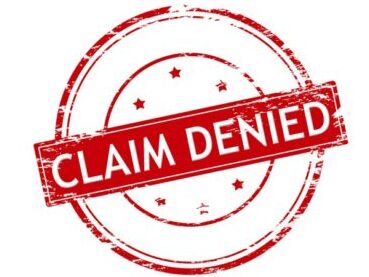An Ambulatory Surgery Center is an operating facility that offers outpatient surgical procedures. That conveys you don’t need to stay back in the hospital and return home within a few hours of the procedure. This facility has become popular because it can expedite recovery and reduce downtime. Maintaining a healthy revenue scenario for the much sought-after ambulatory service centers largely relies on the ASC claims generated from medical billing.

Why are ASC Claims Denied?
Payers and ASCs are in constant disagreement. ASC centers are trying to get paid for their services on one end. On the other end, payers attempt to reduce unnecessary payments. With the constant amendments to payers’ authorizations, ASCs must follow best practices with payers and providers across the authorization process.
Pay Attention to ASC Claims Before Submission
ASCs every stage of the billing process, from patient information collection to verification, ASCs should steer clear of any mistakes that will cause denials. Here we elaborate on the prime aspects to evaluate before submitting an ASC claim; otherwise may lead to delayed payments and denials:
Validate patient’s Eligibility, Coverage, and Benefits
Rejected claims stem from inadequate coverage by payers and eligibility for certain reimbursements. Most ASC centers don’t consider the confirmation of insurance coverage before filing a claim. In addition, payers and insurance plans don’t cover all procedures resulting in claim denials. Therefore, ASC facilities should verify insurance coverage with the payer or through an engagement software system before submitting the claim.
Clinical Documentation
False or inadequate information is a leading cause of claim denials. Patient demographic data, such as names, social security numbers, etc., are vital information that must be checked for accuracy before claim submission.
Therefore, clinicians and coders should adopt good clinical documentation strategies to ensure that information is entered accurately before submitting an ASC claim. Here are a few tips to enhance clinical documentation.
Shift to an Automated System
- Adopting an effective software solution to crosscheck the codes used in the procedure aligns with those in the authorization.
- An automated system for these checks helps identify errors on claims before submission.
- Prevents denials but provides a faster and lower error rate than manual processes.
Reconfirm Authorization Dates
The authorization dates have validity. If the claims are denied if submitted after this date. Take note of authorization dates and ensure processes are made within the period. Checking the authorization date period helps practices prepare and submit claims before the authorization period expires. This prevents denials.
Watch out for Coding Errors
Coding errors account for a significant revenue loss in ASCs. Ensure clinicians and coders enter the correct code. Therefore, screening claims for common coding errors is vital before submission.
Approved Medical Procedures
ASC has limited procedures that payers cover. Besides the limitations in those procedures, they have specific criteria that must be met and adhered to. Some of the criteria include elective, urgent, and not life-threatening procedures. Most practices have a list of covered procedures, so double-check to see if they are eligible before submitting a claim.
Bottom Line
Claims reimbursement processes play a crucial role in the revenue cycle of most ASC’s, as they ensure payers are paid for covered procedures they perform. Delayed payments, time-consuming correction of denied claims, and loss of payments directly result from a poorly planned and/or executed claims process.
To prevent a claim denial, practices, and ASC personnel should follow straightforward steps and best practices before submitting a claim to a payer. Ensuring correct patient information and that claims remain valid within the authorization period should always be checked before submitting claims.

